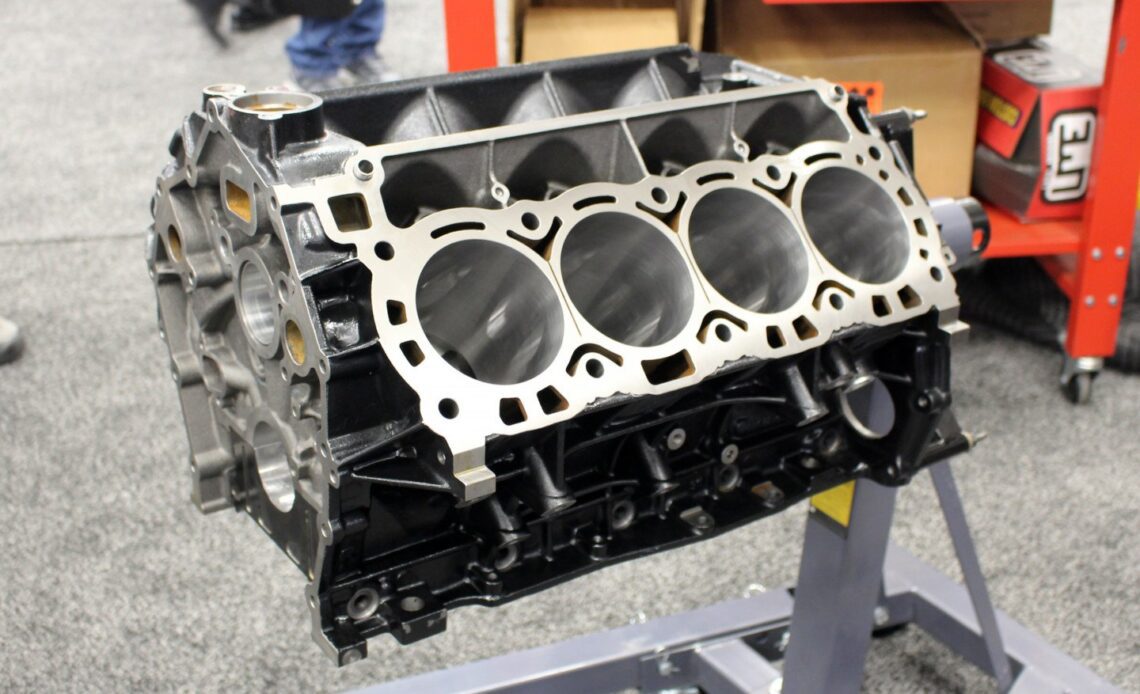There’s a meme that is perpetually making its rounds on the internet poking fun at where you think a 1,000-horsepower engine is built (with a photo of a laboratory clean room) versus where 1,000-horsepower engines are actually built (with a photo of parts being hosed off on grass). While that’s a funny joke, the truth is, we took one of the nation’s top engine builders and pulled them out of their normal assembly environment, in order to build our Summit Racing 1,000-horsepower twin-turbo 7.3-liter Godzilla giveaway engine live on the floor of the Performance Racing Industry Show in Indianapolis, Indiana in early December 2022.
As we’ve discussed previously, we’re building this 1,000-horsepower monster to give away to a lucky winner through www.EngineLabsGiveaway.com. We’ve teamed up with Late Model Engines and Ford Performance Parts, as well as our presenting sponsor Summit Racing and a host of other partners, to take this engine from a basic crate engine off the factory assembly line to a twin-turbo beast, ready to power someone’s project car. So let’s look at the parts we used to take the engine from a block and a bunch of boxes to a complete engine in our booth.
The factory Godzilla block is an interesting, robust design. The modern features incorporate both strength and weight savings. Summit Racing, our presenting sponsor, not only sells the Godzilla crate engine and components but also all the parts you need to swap the engine into your ride of choice.
A Big-Block Base
The basis of this whole project is one of Ford Performance Parts’ 7.3L crate engines, right out of the catalog. We dynoed the engine in its base form (you can see the results of that test, here) before we disassembled the engine and shipped it off to the Indiana Convention Center in order to be transformed into the twin-turbo beast we’re giving away.
As a base, the OEM Godzilla block is a great core upon which to build. It’s a cast-iron block with a semi-closed deck design offering significant support to the cylinders, as cast. The engineers at Ford have machined slots in the deck in between each cylinder to enhance coolant flow and prevent hot spots, while on the underside, the main caps feature a robust six-fastener design (four vertical bolts and two side bolts per cap).
While we upgraded to Energy Manufacturing’s billet main caps, we retained the OEM main bearings, as they should be capable of handling what we throw at it.
The OEM caps were replaced by…
Click Here to Read the Full Original Article at DragzineDragzine…

